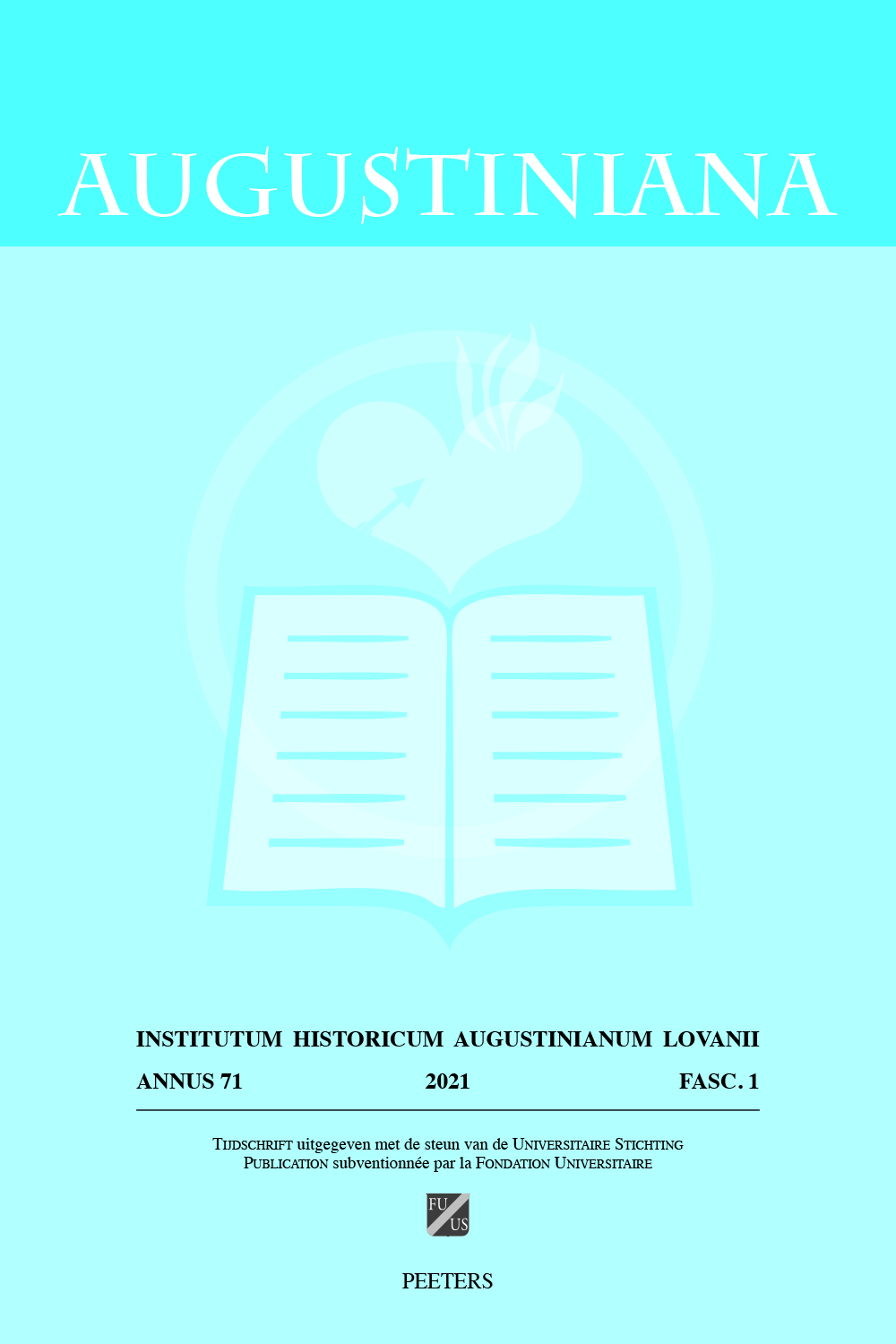 previous article in this issue previous article in this issue | next article in this issue  |

Preview first page |
Document Details : Title: Monasticism in Augustine's Early Argument against Manichaeism Author(s): STEEN, Austin Journal: Augustiniana Volume: 74 Issue: 2 Date: 2024 Pages: 327-350 DOI: 10.2143/AUG.74.2.3293932 Abstract : Augustine’s earliest work against the Manichaeans, De moribus ecclesiae catholicae et de moribus Manichaeorum (mor.), has attracted scholars interested in Manichaeism and monasticism. The result, however, is engagement with the treatise in a manner that primarily focuses on one component or the other. In an attempt to integrate both pieces, this article argues that Augustine’s growing understanding of monasticism contributes to his early refutation of Manichaeism through virtue’s role in a communal context. This article focuses only on Augustine’s earliest work because consideration of the impact of monasticism on his later anti-Manichaean polemic is a larger and more complicated task. His familiarity with monastic and ascetic concepts, both in the work and in the time leading up to composing the work, reveals a developing interest in the monastic life, albeit with limited knowledge. As a result, his early polemic against the Manichaeans introduces Christian monasticism when discussing food practices to emphasize the social component of individual temperance. He uses Scripture to support how Christian monasteries uphold communal virtue through their modest habits related to food. This discussion contrasts the Manichaean eating practices in book 2 as the ensuing social dynamic violates care for the broader community. As a result, Augustine’s earliest work against the Manichaeans demonstrates not only his growing familiarity with monasticism but also how he employs this knowledge against Manichaean practices. |
|


